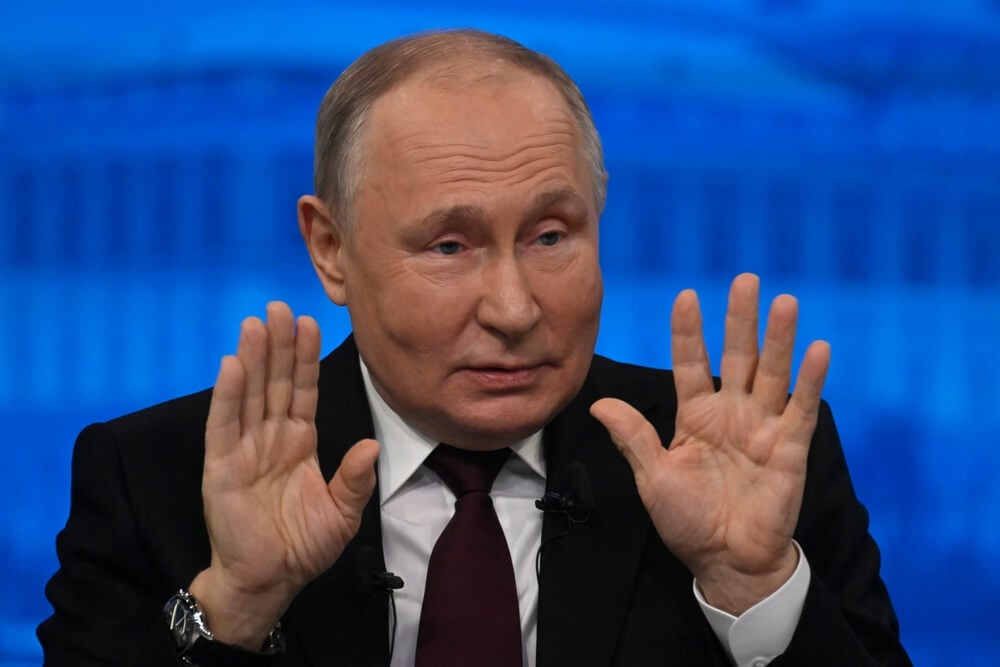Iran's positions in the Middle East are in sharp decline after Israel decimated the potential of Tehran's main affiliates in the region—first Hamas and then Hezbollah.
Tehran is losing its previous reliance on its proxies as it searches for a model to compete with Israel in regional relations, and it is natural to seek support from allies outside the region.
Russia is certainly one of them, but to what extent can Tehran count on Moscow to wholeheartedly come to its aid if the situation escalates to the point where Iran will directly intervene in the conflict?
Those chances seem very slim today, and therefore the declaratively strong alliance between Iran and Russia can hardly pass the test of its strength.
Russia has traditionally been a strong supporter of Iran's policy of confrontation with the West. Moreover, Putin's increasingly pronounced anti-Western policies in the last decade have naturally led to strengthening ties with Tehran.
The two countries are partners in a series of regional organisations that advocate for the creation of an alternative model of international economic and political relations devoid of the dominance of the US and the West.
The summit of one of them, BRICS, is underway, in which Iran will participate as a full member for the first time.
Support for the Houthis
Furthermore, the alliance between Iran and Russia significantly influences their response to the crises in which they are directly involved. Iran strongly and tangibly supported the Russian aggression against Ukraine, getting involved in it directly, with large arms deliveries to Moscow, when it needed it most.
Given the recent developments in the Middle East, Tehran has the opportunity to request a counter-favour from its traditional partner. But it is quite uncertain whether Moscow will meet the expectations of its friend in trouble.
Support for the pro-Iranian Houthis in Yemen is currently the most challenging terrain for the alliance. Both sides selected this extremist group as the most appropriate platform to showcase their respective positions in the region.
“Tehran will likely prioritise providing the group (Houthis) with advanced weapons and weapon components to enable more accurate and devastating maritime operations and strikes on Israeli territory,” said Emily Milliken from the Atlantic Council's Middle East Programmes.
Iran's focus on strengthening the role of the Houthis comes after heavy blows to the potential of Hezbollah
Iran's focus on strengthening the role of the Houthis comes after heavy blows to the potential of Hezbollah in Lebanon, the strongest and most well-equipped pro-Iranian extremist group in the region.
At the same time, Russia recognises the Houthis as a suitable ground to demonstrate its partnership with Iran by supporting them, but at the same time not to take too active a role in the Middle East crisis.
“Instead of direct participation, Russia could seek to support Iran by supplying weapons to Iranian proxy forces, including Hezbollah and the Houthis… For the Kremlin, that would be more logical if such deliveries were going to harm the United States, rather than Israel. While Moscow believes obstructing the United States anywhere on the planet to be a legitimate goal, it does not think the same about Israel,” said Nikita Smagin, an expert on Iran from the Carnegie Endowment for International Peace.
A Russian tightrope walking
Recent reports confirm that Moscow is walking a tight rope to balance its stance on the Middle East crisis, particularly to avoid jeopardising its partnership with Iran. This is evident in its intention to deliver weapons to the Houthis in Yemen, a move it abandoned primarily due to pressure from Saudi Arabia.
Still, Yemen and the Houthis remain the focus of Russian attention as a place for arms shipments, as The Wall Street Journal reported earlier this month, emphasising the role in that business of Viktor Bout, a Russian arms dealer who was freed in a prisoner swap two years ago.
Tehran certainly has a greater appetite for Moscow's stronger involvement in the regional conflict
However, Tehran will not be entirely satisfied with Russia's return of favour, even if these arrangements come to fruition, despite the watchful eyes and opposition of regional actors, particularly Saudi Arabia and the US. Tehran certainly has a greater appetite for Moscow's stronger involvement in the regional conflict.
Moscow, therefore, finds itself in a predicament as it views the alliance with Iran not only as crucial for its military operations in Ukraine but also as strategically significant in a shared effort to weaken American global influence.
Russia will not fight for Iran's interests
However, both countries—Russia in Ukraine and Iran in the Middle East—are struggling to manage the regional crises they are leading. At the same time, both are under a regime of harsh sanctions, which deplete their economies and force them to make unwanted concessions to third parties, particularly China and India.
 Iran's expectations that Moscow will more decisively come to its support in the Middle East strategy are not particularly well-founded - Vladimir Putin
Iran's expectations that Moscow will more decisively come to its support in the Middle East strategy are not particularly well-founded - Vladimir Putin
The crises they are involved in and have caused are testing the mutual commitment of Russia and Iran, making it increasingly unlikely that the rhetoric of an overt partnership will effectively address the underlying deep-seated issues.
Iran's expectations that Moscow will more decisively come to its support in the Middle East strategy, which is suffering heavy blows, are not particularly well-founded. Moscow has much more pressing interests, no matter how hard it tries not to communicate this directly to Tehran.
“There is no suggestion that Russia is considering any sort of direct military intervention in the ongoing fighting in the Middle East. Moscow is so deeply committed in Ukraine that it has no time for another war. Nor has it ever seemed likely to fight to further Iran’s interests,” said Nikita Smagin.